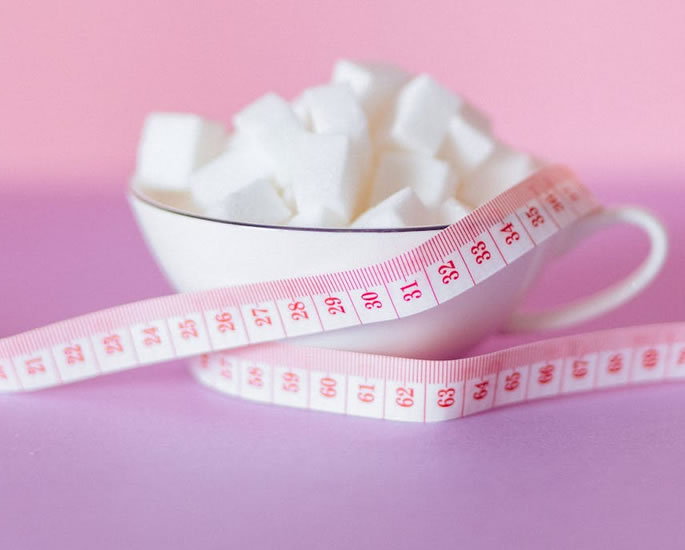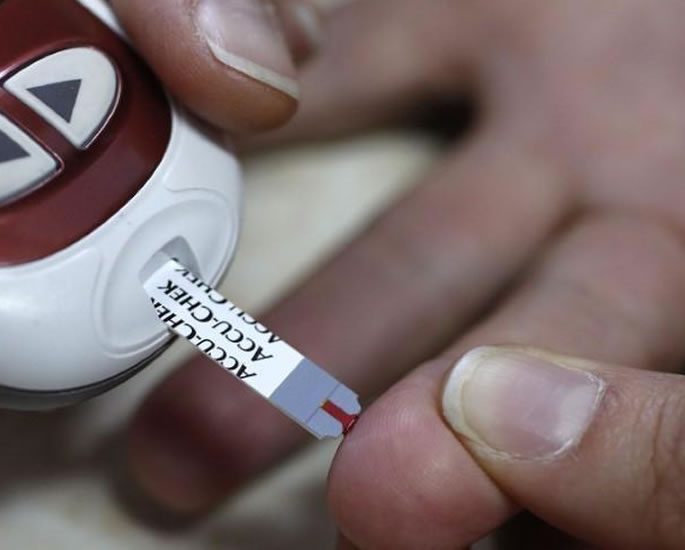Sucrose is the name for common sugar
Sugar is often linked to health issues but how bad is it really?
It is found in a variety of foods, such as natural ones in fruit, as well as high-processed ones.
In a review published in BMJ, it is linked to 45 different adverse health outcomes, conditions that often simmer for years before symptoms suddenly boil to the surface.
This includes obesity, diabetes, heart disease, depression, some cancers and even death.
Researchers recommended limiting the consumption of added sugars to six teaspoons a day.
But is it really bad? We look into the facts surrounding sugar and whether it is really bad for you.
What is Sugar?
Before delving into whether sugar is really bad for your, we first need to understand exactly what it is.
Its technical definition is:
“Any of the class of soluble, crystalline, typically sweet-tasting carbohydrates found in living tissues and exemplified by glucose and sucrose.”
This definition categorises many different types of carbohydrates and does not really clarify what most people mean when they talk about this substance.
Sucrose is the name for table sugar and it comprises of two molecules – glucose and fructose.
The different types that are found in food are mostly comprised of these two molecules, just in different ratios.
For example, table sugar is 50/50 glucose and fructose.
On the other hand, high-fructose corn syrup is 45/55 glucose and fructose.
Not Fattening by Itself

It turns out that sugar on its own is not inherently fattening and many studies have shown this to be true.
In one report, people had high-sugar diets (43% of their total daily calories were from sugar) but were held in a calorie deficit. These people lost weight over the span of six weeks.
Another study involved people being given a high-sugar liquid drink in their diet.
It found that they lost substantial amounts of weight, with one person losing over 90kg.
This is because participants consumed fewer calories due to the drink not being very tasty.
When this type of carbohydrate is added to our food, we often increase our total calorie intake, which can lead to weight gain.
However, sugar alone is not an essentially fattening thing to consume.
If you consume the same amount of calories with different amounts of sugar in your diet, there will be no real difference in weight gain or weight loss.
Why does Weight Gain matter for Health?

The thing to consider is how this substance might impact weight gain.
It turns out that weight gain and weight loss have a huge impact on your health.
The risk of diabetes, heart disease, and many forms of cancer increases as your body weight and body fat increase.
For example, your lifetime diabetes risk increases from 7.6% for underweight people to 70.3% for very obese people.
Additionally, the lifetime risk of having a cardiovascular event is 21% and 67% higher for overweight and obese people, respectively, compared to people at a healthy weight.
This means that weight gain is a great contributor to many dangerous health risks.
Sugar cannot be fully blamed for weight gain, which primarily results from a calorie surplus over long periods of time.
However, its intake can be one piece of a larger lifestyle that consists of an excessive daily calorie intake.
The Effect of Added Sugar on the Body

Sugar is not actually bad for you. In fact, it is a great source of energy, when consumed in moderation.
Nathalie Sessions, wellness dietitian at Houston Methodist Wellness Services, said:
“Healthwise, we’re not too concerned with the natural sugar found in whole foods, such as fruit or dairy.
“The natural sugars found in these foods are accompanied by other important nutrients, such as fibre, protein or fat, all of which come with their own health benefits.”
On the other hand, these healthy co-nutrients are often taken out of, or missing altogether, from the prepackaged food items that are high in added sugar.
Sessions explained: “When you eat a source of natural sugar, such as a piece of fruit, you benefit from the accompanying fibre.
“First, this fibre contributes to a feeling of fullness — helping to prevent overeating.”
“Second, this fibre helps your body absorb and process the sugar you’re consuming gradually over time, creating a more lasting source of energy and preventing a spike in your blood sugar.”
At its most trivial, a blood sugar spike can result in a “sugar hangover”. But at its worst, frequent spikes over time can lead to insulin resistance and eventually, diabetes.
Sessions added: “Remember, your body doesn’t need added sugar.
“In fact, it can easily live without it.
“It’s important to understand the difference between natural sugar and added sugar, as well as limit added sugar when you can.”
How Much is Too Much?

Prepackaged foods containing added sugar do not come with the health benefits of whole foods.
But instead of trying to avoid it altogether, take note of the recommended limits and make sure you are reading nutrition labels.
Sessions says: “Health experts generally recommend keeping added sugar to just 10% of your daily calories, and some propose this percentage should be even lower.
“Unfortunately, the average adult consumes quite a bit more than what’s recommended.”
For a 2,000-calorie diet, it is recommended:
- Men should have no more than 9 tsp. equivalents (just under 40 grams) per day.
- Women should have no more than 6 tsp. (about 25 grams) per day.
Sessions says: “Fortunately, ‘Added Sugar’ amounts are now typically listed under the carbohydrates section of most nutrition labels. Take advantage of this!
“If you don’t read the ingredient list of a food item, it’s like buying a house without ever going inside — something you probably wouldn’t do.
“I always recommend flipping the package over and scanning the nutrition label.”
When checking nutrition labels, you might be surprised by how much added sugar is in some of your favourite snacks.
You may also be stunned to find that this substance makes its way into a lot of food items you may not have expected.
This is especially important if you’re looking for ways to cut some of the substance out of your diet.
What About Sugar-Free Foods?

Many people who are concerned about consuming too much sugar tend to switch to artificial sweeteners.
However, the food industry is one step ahead, with many high-processed foods coming in ‘sugar-free’ variations.
While zero-calorie sugar substitutes may, when consumed in moderation, be better for you than sugar, there is more evidence linking some of them to a higher risk of cancer, cardiovascular disease and other conditions.
While more research is needed, the real problem with such substitutes is what they are in – junk food and drinks – and how they are marketed.
Liz Weinandy, an instructor of practice in medical dietetics at Ohio State University’s Wexner Medical Centre, said:
“Most foods that have these sugar subs are not healthy to begin with, and replacing the sugar gives the food a ‘health halo’ in a sense where we may feel the food is healthier because it has ‘zero added sugar’.”
While it may not be inherently bad for you but it is essential to be mindful of your intake and aim to limit added sugars in your diet.
The World Health Organisation (WHO) recommends that adults and children reduce their daily intake of added sugars to less than 10% of total energy intake.
Ideally, an even lower intake, around 5% of total energy, is associated with additional health benefits.
Remember that not all sugars are created equal, and natural sugars found in whole foods come with essential nutrients and fibre that can support a balanced diet.
Moderation is key and focusing on a diet that includes a variety of whole, nutrient-dense foods can help you maintain better overall health.
As always, if you have specific health concerns or dietary needs, it’s best to consult with a healthcare professional or a registered dietitian.






























































